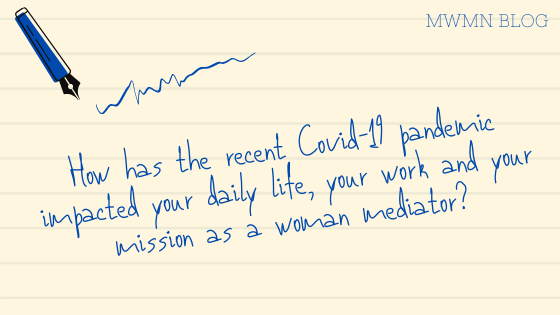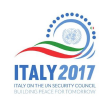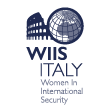Life during the Covid-19 pandemic has not been the best time for both diplomacy and mediation, as it has deprived us from our most effective and powerful tool, namely personal contacts. Face-to-face meetings and negotiations and the like were suddenly replaced by video conferences, as we shifted to work-from-home arrangements amid drifting in and out of lockdowns.
And yet, diplomatic headquarters in Valletta depended on us to coordinate and offer a meaningful response to the pandemic. As borders began to shut down, the Embassy’s focus shifted to consular assistance pivoting on three main pillars. The first pillar was assisting citizens stranded abroad to return to Malta. The second was finding ways and means of securing medical equipment and medicines from abroad. The third pillar was facilitating contacts between national health authorities in an effort to boost international collaboration, information exchange and best practices.
Assisting people in distress portrays the human face of diplomacy and, in a way, this adjustment in our daily work meant that the Embassy assumed more relevance to Maltese citizens. Our interlocutors also changed as airline companies, health and airport authorities, as well as fellow citizens became our main mediating allies.
On a personal note I will say that for those who, like me, were away from their family, technology helped us keep in touch with our loved ones. It helped us stay together as we stayed apart.
Irrespective of any changes, international cooperation remains essential and crucial, as the pandemic has shown us that what happens somewhere affects everywhere. But I do wonder whether this global pandemic will usher in a new way of conducting our work – introducing a hybrid reality, which combines face-to-face meetings and on-line participation, traditional and modern tools.
Covid-19 will most likely go down in history as having been a great disruptor in the early 21st century, but it could also bring about more inclusivity of women in mediation and negotiations, including in peace processes, thanks to a greater use of technology.
The Covid-19 pandemic has taken the world by storm, reshaping both our personal and professional realities. It has drastically transformed how we walk through the world and interact with one another on a daily basis.
Like many others, my experience during this time has been marked by its own ups and downs. I have had to take numerous leaps of faith and trust that I would be able to uphold my mission as a woman mediator. Operating in a volatile and conflict-ridden environment in the midst of a devastating global crisis seemed virtually impossible at first glance – I must admit. Stress, anxiety and uncertainties have led to escalating tensions which, as any mediator would, I felt a responsibility to mitigate. I have held myself accountable for the communities I work with – now more than ever – as well as have better understood the importance of my role in fostering safe and inclusive spaces for dialogue, thus making the most vulnerable ones heard and taken care.
However, being confined in your homes, miles away from the field, creates a disconnect. Because you see, being a mediator heavily relies on organic human contact and non-verbal communication to build bridges. You understand the other better by getting to know their body’s queues, mannerisms and energy, which helps you create that human connection beyond just words. Covid-19 stripped us of that luxury, which meant I had to adapt. Quickly the answer became clear: technology. Ironically, the most quintessentially inorganic tool, one I was not particularly fond of, became my ally. However, what I soon realised was that although being distant had its challenges, it also carried some advantages. It tested the boundaries of my passion and dedication pushing me to be as involved and attentive as possible. With the disconnect and the distance, you have to make twice the effort to create a connection, which makes you more attentive and more patient. You end up listening even better, undistracted by the usual noise and distortion that accompany our everyday life.
Perhaps this was one of those instances in which words (and the silences in between) spoke louder than actions, and where distance brought us closer to one another.
The Covid-19 pandemic has disrupted state-society relations worldwide and has brought to the fore a number of dynamics such as our interconnectedness as a global international society, the crisis of global governance mechanisms, and the vulnerability of health systems both in the Global North and in the Global South.
With the emergence of a consensus on the need for social distancing as the most effective way to prevent the spread of Covid-19, several countries introduced total or partial lockdowns, quarantine, on-line working and education (whenever Internet access is available). At the individual level, we all learnt the hard way how our lives were disrupted. As a short-term outcome of home quarantine for extended periods of time, cases of sexual and gender-based violence increased. This hidden dimension of the Covid-19 crisis at the societal level and across borderlines, both national and class ones, further reinforces my belief as a woman mediator that we should look for peace from the household level.
Professionally the pandemic has introduced fast changes. Those who could, moved to on-line activities in a hurry. In my case, I had to move from in person to on-line teaching having to motivate the students, to keep them engaged and to provide them with constructive feedback and assessments in a period of great anxiety. In addition, I had to carry on with writing my research findings from the fieldwork conducted in Ethiopia’s borderland in January 2019 and in Ethiopia’s Amhara region in January 2020. On top of these activities, I happily took part in an exchange of views among some members of the MWMN as part of a podcast series where I shared my experience doing research on the borderland groups in Ethiopia for the past two decades.
Finally, the most difficult and testing challenge was to mediate conflicts and attention disputes between my four-year old son and six-year old daughter. After weeks of intense university teaching and simultaneous assistance during on-line teaching to my first-grade daughter, I discovered that being a university lecturer does not make me necessarily fit for a full semester of first grade and early childhood education duties. Kids’ activities require a lot of imagination. I am glad my husband was ready to take over the role of teacher (and that he is a wonderful cook as well). We are all building memories and creating resilience for the transition not to a post-Covid-19 era but to living with it until a vaccine is found. One of the greatest lessons we learnt is that we can all play multiple roles.
Until then our attention should remain with the most vulnerable groups as women mediators at the local level across regions: those vulnerable to sexual and gender-based violence across the world, IDPs and refugees. Covid-19 will have a multiplying effect on the root causes of violence and armed conflicts; but while it shall pass, its effects will remain with us testing our solidarity and resilience as women mediators advocating for peace.
After the Covid-19 pandemic outbreak, millions of people around the world were forced to leave their steady daily routines and transferred their work to home offices. I myself was no exception, as we closed the offices and I had to arrange a fully operational one at home and of course be confined there all the time. This big change in my workstyle, which is usually otherwise quite hectic, seemed a bit odd to me at the beginning, but soon became pleasant as well as somewhat of a challenge. While I tried to maintain my daily routine in disciplined order, my meetings, which in most cases and in normal conditions would have taken place abroad, changed from a tedious and strict business activity to cosier and relaxed Zoom calls. But above all, this rearrangement of my work gave me some time to breathe as I did not have to jump from one plane to the other and to wake up every day in a different hotel. So, I guess this was quite a benefit for me personally coming out of the lockdown.
From a business perspective, at the European Centre for Dispute Resolution we were luckily quite far-sighted as we had introduced on-line dispute resolution tools already in 2012. After the pandemic stopped all other activities almost overnight, that was not the case for on-line mediation procedures that continued to grow as in a fairly short period of time people got used to the on-line platforms for all of their businesses.
An interesting observation from on-line mediation, or as a matter of fact from any other on-line meeting or negotiation, is that video calls are actually putting everybody on equal footing, since the dynamic between both genders does not express itself as much on a flat screen with predefined communication techniques as in real life. I thus believe we should – also in the context of the Mediterranean Women Mediators Network – explore possibilities of on-line mediation. This could work to the advantage of women mediators and foster women’s participation in global peace and stability processes.




